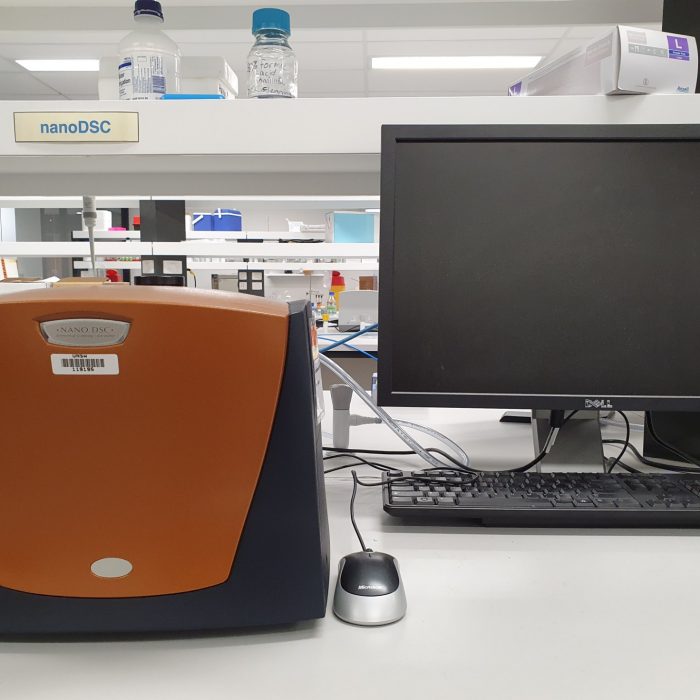TA Instruments NanoDSC

Description
Differential Scanning Calorimetry (DSC) directly measures the stability of macromolecules in solution. This provides valuable insights into the factors that stabilize these biomolecules alone or as complexes, such as protein-ligand or micellar complexes.
The NanoDSC is used for the characterization and evaluation of folding and stability of biopolymers (e.g. proteins, nucleic acids, membranes) as well as for the study of binding interactions. The small cell volume requirements result in much greater reproducibility and sensitivity. Its capillary design avoids the introduction of air bubbles into the cell.
The low amount of protein (as low as 2 µg protein) needed also helps to prevent protein aggregation and precipitation during unfolding.
Specifications
- Sample cell volume: 300 µL
- Sample volume required: 650 µL
Applications
This instrument is used for investigating:
- The binding interactions between molecules
- The stability of proteins, nucleic acids, lipids and other macromolecules.
- The interactions of macromolecules with ligands and rank ligand affinities to protein targets (critical for small molecule drug discovery)
Instrument location
Bioanalytical Mass Spectrometry Facility
Room 2002, Level 2 South
Biosciences Precinct (E26)
UNSW Sydney, NSW 2033
Phone: 02 9385 1717
Email: bmsf@unsw.edu.au
Dr Anne Poljak
-
Phone
02 9385 1994 -
Email
a.poljak@unsw.edu.au
Parent facility
Explore more instruments, facilities & services
Our infrastructure and expertise are accessible to UNSW students and staff, external researchers, government, and industry.




